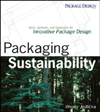Circular Action Alliance Achieves Milestone with Approval of EPR Plan in Oregon

(Courtesy of Circular Action Alliance)
Circular Action Alliance (CAA), a Producer Responsibility Organization (PRO) dedicated to implementing effective Extended Producer Responsibility (EPR) laws for paper and packaging in the United States, proudly announces the approval of the country’s first EPR Program Plan for packaging, printing and writing paper and foodservice-ware by the Oregon Department of Environmental Quality (DEQ).
This marks a significant milestone in implementing Oregon’s landmark EPR law, the Plastic Pollution and Recycling Modernization Act (RMA), which aims to create a more sustainable, equitable, and efficient recycling system statewide.
Under this approved plan, CAA will implement comprehensive initiatives to modernize Oregon's recycling system, reduce plastic pollution, and enhance recycling access for Oregonians. CAA will oversee the coordination and funding of expanded recycling programs in collaboration with producers of covered products, local governments, recycling service providers, and the recycling public.
Transforming Recycling Together
“The approval of Oregon's first-in-the-nation packaging EPR plan demonstrates the value of partnership with DEQ and input from organizations across the state," said Jeff Fielkow, CEO of Circular Action Alliance. "By working together, we have developed a balanced framework that ensures producer compliance while delivering tangible improvements to Oregon’s recycling system. We look forward to launching this transformative program in July.”
The RMA’s vision focuses on addressing systemic challenges in Oregon’s recycling infrastructure, including improving the amount of material recycled, reducing non-recyclables or contamination within the system, and engaging producers of products to manage the lifecycle impacts of their products.
Through the approved plan, CAA will:
- Expand Access: Ensure equitable access to recycling services, particularly for historically underserved communities, such as rural and non-English speaking communities.
- Enhance Infrastructure: Make investments to modernize recycling facilities to improve efficiency and recovery rates.
- Promote Education and Outreach: Launch statewide campaigns to educate community members on proper recycling practices and waste reduction.
- Strengthen Partnerships: Foster collaboration with product producers, municipalities and recyclers to align on shared sustainability goals.
Looking Ahead
“Plan approval clears the way for the Oregon team to begin the next phase in implementation of the law,” said Kim Homes, Executive Director for CAA Oregon. “Our producer portal is live and receiving data, and we have finalized all guidance and agreements for producers, both significant milestones reflecting the substantial efforts that position us for a strong start. We are ready and encouraged by producers' recent engagement with CAA as we work together towards the first EPR reporting cycle for paper, packaging, and foodservice-ware in the U.S.”
With RMA implementation set to begin July 1, 2025, CAA is poised to make significant strides in reducing the environmental impact of packaging waste while fostering economic and environmental benefits for Oregon communities. This groundbreaking, comprehensive program offers valuable insights for other states seeking to tackle plastic pollution and modernize their recycling systems
About the RMA
Oregon’s Plastic Pollution and Recycling Modernization Act, also known as the RMA, creates important changes in how materials management is undertaken and funded within the state. The law strives to improve the overall effectiveness of Oregon’s recycling collection and processing ecosystem through a shared responsibility model. The RMA was passed in 2021, and the program launches on July 1, 2025.
Under the RMA, local governments retain responsibility for funding and managing curbside recycling collection and delivering educational programs. Producers of covered products, through CAA, the Producer Responsibility Organization (PRO), provide funding to support existing material processing costs and some transportation costs. The PRO also funds certain system improvements and innovations and both funds and manages the collection of certain materials through a depot system.
Looking for a reprint of this article?
From high-res PDFs to custom plaques, order your copy today!









